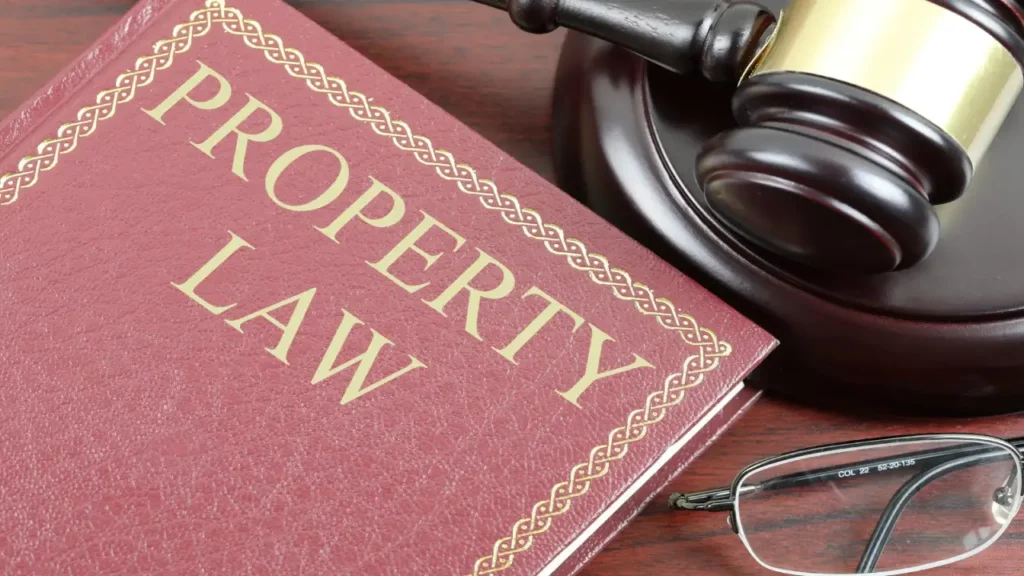In the world of real estate, property transactions can be complex and overwhelming. Whether you are a buyer or a seller, understanding the legal aspects of these transactions is crucial to ensure a smooth and successful process. By familiarizing yourself with the basics of property transactions and the role of real estate law, you can navigate this intricate landscape with confidence and peace of mind.
Understanding the Basics of Property Transactions
Property transactions involve the buying and selling of real estate may with assistance of property lawyers Sydney. Whether it’s a residential house, a commercial property, or a piece of land, these transactions require careful consideration and adherence to legal requirements. Real estate law governs these transactions, ensuring that both buyers and sellers are protected and their rights are upheld.
The Role of Real Estate Law in Property Transactions
Real estate law plays a fundamental role in property transactions. It encompasses various legal principles and regulations that govern the purchase, sale, and ownership of real estate. This includes the creation and enforcement of contracts, property rights, zoning laws, and the resolution of any disputes that may arise during the transaction process. Visit https://lenagarbarneslaw.com/mastering-property-law-key-concepts-every-homeowner-should-know to get about property law key concepts every homeowner should know.

Key Legal Terms in Property Transactions
Before diving into the legal considerations for buyers and sellers, it’s important to understand some key terms commonly used in property transactions:
- Deed: A legal document that transfers the ownership of a property from the seller to the buyer.
- Escrow: A process where a neutral third party holds funds and documents until all the conditions of a contract are met.
- Contingencies: Conditions that must be met in a contract for the transaction to proceed. Common contingencies include financing, home inspections, and appraisals.
Let’s take a closer look at the role of a deed in property transactions. The deed is a crucial legal document that serves as proof of ownership transfer. It contains detailed information about the property, including its legal description, boundaries, and any encumbrances or liens. The deed is typically prepared by an attorney or a title company and is signed by both the seller and the buyer.
Another important aspect of property transactions is the escrow process. Escrow provides a level of security for both parties involved in the transaction. When funds and documents are placed in escrow, they are held by a neutral third party until all the conditions of the contract are met. This ensures that the buyer’s funds are protected and that the seller receives payment only when all the necessary requirements are fulfilled.
Additionally, contingencies are an essential part of property transactions. These are conditions that must be met for the transaction to proceed smoothly. Common contingencies include obtaining financing, conducting home inspections, and obtaining a satisfactory appraisal. These contingencies protect both the buyer and the seller by allowing them to back out of the contract if certain conditions are not met.
Legal Considerations for Buyers
When it comes to property transactions, buyers must be diligent and well-informed to protect their interests. Here are some important legal considerations for buyers:
Due Diligence and Property Inspection
Before finalizing a property purchase, buyers should conduct thorough due diligence to ensure everything is in order. This includes inspecting the property for any defects or structural issues, reviewing property records and titles, and verifying zoning and land use regulations.
Additionally, buyers should consider hiring professional inspectors to assess the property’s condition thoroughly. These experts can identify potential problems that may not be visible to the untrained eye, such as hidden water damage, faulty electrical wiring, or structural weaknesses. By investing in a comprehensive inspection, buyers can make informed decisions and avoid costly surprises down the line.
Understanding Purchase Agreements
Purchase agreements are legally binding contracts between buyers and sellers that outline the terms and conditions of the property sale. It’s crucial for buyers to carefully review and understand these agreements, seeking legal advice if necessary, to ensure their rights and obligations are protected.
Buyers should pay close attention to clauses related to contingencies, earnest money deposits, and timelines for inspections and closing. Any ambiguities or discrepancies in the agreement should be clarified before signing to prevent misunderstandings or disputes during the transaction process. Working closely with a qualified real estate attorney can provide buyers with peace of mind and legal clarity.

Financing and Mortgage Legalities
Securing financing for a property purchase often involves legal processes and documentation. Buyers must understand the implications of mortgage contracts, loan terms, and repayment obligations. Engaging a real estate attorney can provide valuable guidance in navigating these complexities.
Buyers should be aware of the various types of mortgages available, such as fixed-rate mortgages, adjustable-rate mortgages, and government-backed loans. Each option comes with its own set of terms and conditions, interest rates, and eligibility requirements. It’s essential for buyers to compare multiple loan offers, review all financial documents carefully, and seek clarification on any terms they find confusing or unclear.
Legal Considerations for Sellers
Sellers also face a range of legal considerations when undertaking a property transaction. Being aware of these considerations can help sellers fulfill their legal obligations and protect their interests:
One crucial legal consideration for sellers is the issue of property title. Ensuring that the title is clear and free of any liens or encumbrances is essential for a smooth transaction. Sellers should obtain a title search to uncover any potential issues that may need to be addressed before the sale can proceed. Working with a title company or real estate attorney can help sellers navigate this complex process and resolve any title issues that may arise.
Disclosure Requirements and Legal Obligations
Sellers are typically required to disclose any known defects or issues with the property. Failing to disclose material facts can lead to legal consequences and potential lawsuits. Sellers should familiarize themselves with the specific disclosure requirements in their jurisdiction and work closely with their real estate agent and attorney to ensure compliance.
Another legal consideration for sellers is the negotiation of repairs. After a home inspection, buyers may request repairs to be made before the sale is finalized. Sellers need to understand their obligations regarding these repair requests and negotiate in good faith with the buyer. It’s essential for sellers to document any agreements regarding repairs in writing to avoid misunderstandings or disputes down the line.
Navigating the Sales Contract
Like buyers, sellers should have a solid understanding of the sales contract. This legally binding document outlines the terms and conditions of the sale, including the purchase price, contingencies, and closing dates. Sellers should carefully review the contract with their attorney before signing to avoid any unexpected legal issues.
Handling Multiple Offers Legally
In competitive markets, sellers may receive multiple offers on their property. It’s important for sellers to handle these offers in an ethical and legal manner. They must consider all offers impartially and ensure they comply with fair housing laws and anti-discrimination regulations.
Furthermore, sellers should be aware of the legal implications of accepting an offer. Once an offer is accepted, it becomes a legally binding contract, and both parties are expected to fulfill their obligations as outlined in the agreement. Sellers should be prepared to meet all deadlines and requirements specified in the contract to avoid any potential legal disputes or repercussions.
The Role of Legal Professionals in Property Transactions
Engaging the services of legal professionals is a wise decision for both buyers and sellers. Real estate attorneys play a crucial role in ensuring that all legal requirements are met, protecting their clients’ interests, and resolving any disputes that may arise during the transaction process.
The Importance of Real Estate Attorneys
A real estate attorney specializes in property laws and regulations, providing invaluable advice and guidance throughout the transaction. They can review contracts, negotiate on behalf of their clients, conduct title searches, and facilitate the closing process. Having a knowledgeable attorney by your side can help you navigate the legal complexities with confidence.
Furthermore, real estate attorneys can also assist in conducting due diligence on the property in question. This includes investigating any potential zoning issues, outstanding liens, or other legal encumbrances that could affect the transaction. By uncovering these issues early on, attorneys can help their clients make informed decisions and avoid costly legal pitfalls down the road.
Legal Services for Dispute Resolution
Despite careful planning and preparation, disputes can still arise during property transactions. Whether it’s a disagreement over contract terms, an issue with the property title, or a breach of contract, legal professionals can help resolve these disputes through negotiation, mediation, or, if necessary, litigation.
Moreover, real estate attorneys can also assist in drafting and reviewing legal documents related to the transaction, such as purchase agreements, deeds, and mortgage documents. Their attention to detail can help prevent misunderstandings and ensure that all parties are in agreement on the terms of the deal. This level of legal oversight can provide peace of mind to both buyers and sellers, knowing that their interests are protected throughout the process.

Common Legal Issues in Property Transactions
While each property transaction is unique, there are common legal issues that buyers and sellers may encounter:
Title Disputes and Their Resolution
Title disputes can arise when there are competing claims or inconsistencies in the ownership history of a property. Resolving these disputes may require legal action, such as quieting title lawsuits or negotiating with other claimants. It’s essential to conduct a thorough title search and obtain title insurance to mitigate the risks associated with title disputes.
Legal Consequences of Breach of Contract
A breach of contract occurs when one party fails to fulfill their obligations as outlined in the agreement. This can lead to legal consequences, including the right to seek damages or terminate the contract. Buyers and sellers should understand the potential legal repercussions of breaching a contract and seek legal advice when necessary.
Another critical legal issue in property transactions is zoning compliance. Zoning laws regulate how a property can be used, such as for residential, commercial, or industrial purposes. Failure to comply with zoning regulations can result in fines, penalties, or even the inability to use the property as intended. It’s crucial for buyers to conduct due diligence on zoning laws and ensure the property’s current use aligns with local regulations.
Additionally, environmental concerns can impact property transactions. Issues such as contamination, hazardous materials, or wetlands on the property can lead to legal liabilities for buyers and sellers. Conducting environmental assessments and obtaining necessary permits can help mitigate these risks and ensure compliance with environmental regulations.
In conclusion, navigating property transactions involves various legal considerations for buyers and sellers. Familiarizing yourself with the basics of property transactions, understanding key legal terms, and seeking the guidance of legal professionals can help ensure a successful and legally compliant transaction. By being proactive and knowledgeable, you can approach property transactions with confidence and protect your interests along the way.





